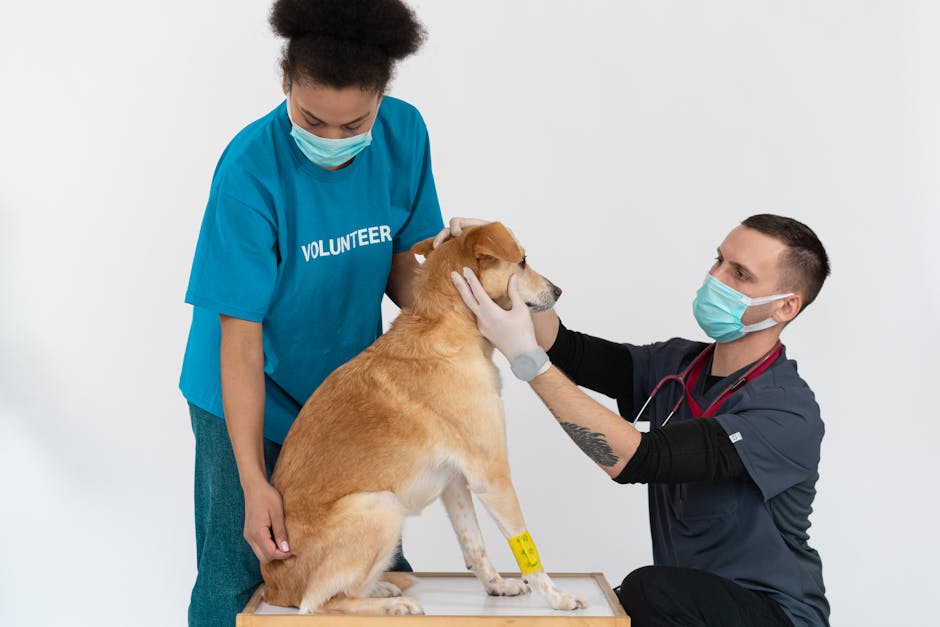Pet owners often perceive veterinary checkups as necessary only when their animal displays symptoms. However, this reactive approach can sometimes miss early warning signs of developing conditions. A proactive, preventative approach, exemplified by consistent checkups, is profoundly important. These routine evaluations allow veterinarians to detect potential issues at early stages when treatment is often more effective and less invasive.
A critical aspect of regular checkups is preventative medicine. Veterinary professionals can identify predispositions to certain illnesses based on breed, age, and lifestyle. For instance, certain breeds are more prone to hip dysplasia, while senior pets may be at increased risk of arthritis. During checkups, veterinarians can advise on dietary adjustments, exercise recommendations, and preventative measures to mitigate these risks. This proactive approach can significantly enhance the overall quality of life for the pet.
Beyond preventative care, regular checkups offer a platform for ongoing monitoring of existing conditions. If a pet has been diagnosed with a chronic disease, such as diabetes or kidney disease, routine checkups allow veterinarians to track the progression of the condition and adjust treatment plans accordingly. This consistent monitoring ensures that the pet receives the most appropriate care throughout their lifespan.
The importance of these visits also extends to early detection of underlying illnesses. Many seemingly minor complaints, such as lethargy or a change in appetite, can be indicators of more serious medical problems. A veterinarian, through a thorough physical examination, can assess the pet’s overall health and identify subtle clues that might otherwise be missed. Conditions like cancer, organ dysfunction, and endocrine imbalances often present initially with subtle symptoms, highlighting the crucial role of early intervention.
Proper vaccination schedules are another crucial element often addressed during regular checkups. Vaccinations provide immunity against various infectious diseases, and their efficacy depends on timely administration. These procedures are often incorporated into the checkup schedule, safeguarding against the threat of contagious illnesses and protecting the health of the pet, as well as the wider community.
A significant component of a pet’s well-being revolves around nutrition. During checkups, veterinarians can assess a pet’s body condition score and provide tailored dietary recommendations. Obesity, an increasingly common problem in pets, can lead to numerous health complications. Veterinarians can guide pet owners on appropriate portion sizes, balanced diets, and lifestyle changes to maintain a healthy weight, ultimately contributing to extended lifespan.
Moreover, preventative dental care is equally important. Dental disease is prevalent in pets, and early detection is vital. Regular checkups allow veterinarians to identify signs of periodontal disease, plaque buildup, and oral infections. Prompt intervention with professional cleaning and treatment can help maintain healthy teeth and gums, and prevent serious oral problems that could otherwise jeopardize the animal’s overall health.
The comprehensive nature of a checkup extends beyond physical examinations. Veterinarians can provide valuable insights into the pet’s behavior and any changes that may warrant concern. Unusual vocalizations, changes in activity levels, or behavioral quirks can signal underlying health issues or stressors. Owners can gain crucial information about behavioral patterns and identify potential underlying causes of discomfort or stress.
One cannot underestimate the significance of a good rapport between the pet owner and the veterinarian. Consistent checkups foster this relationship, enabling a collaborative approach to pet care. Through open communication and frequent interactions, owners gain a deeper understanding of their pet’s health needs, and veterinarians can tailor their recommendations to better meet those needs.
In conclusion, regular veterinary checkups are an essential component of responsible pet ownership. They are not just a routine task, but a vital investment in the long-term health and well-being of a beloved companion. From preventative medicine and early detection of illnesses to monitoring existing conditions and addressing behavioral changes, these visits provide crucial information and support for a healthy, happy, and longer life for our furry friends. By prioritizing routine checkups, pet owners can make a profound difference in the quality and duration of their pets’ lives.
